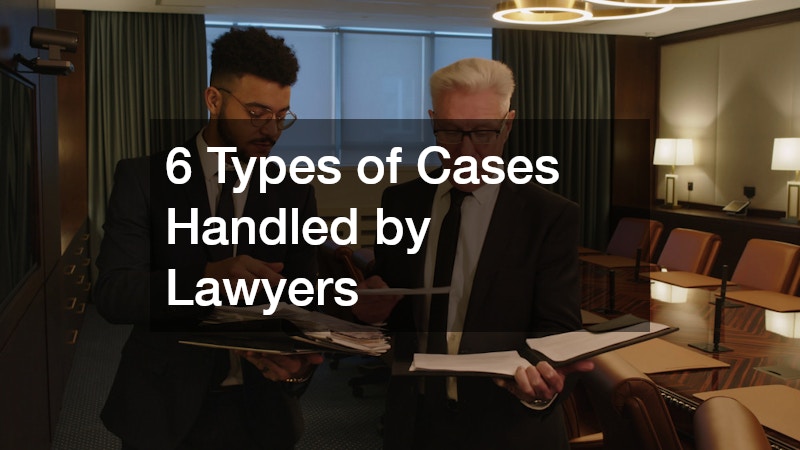Facing a marijuana charge can be a daunting experience, but having skilled legal representation can significantly impact the outcome. Here’s how your lawyers work to beat your marijuana charges:
Understanding the Charges Against You
Your lawyer’s first task is to thoroughly understand the marijuana charge you are facing. This involves analyzing the specific details of your case, the evidence presented by the prosecution, and any previous legal precedents that may impact the outcome.
By gaining a comprehensive understanding of the charge, your lawyer can identify any weaknesses in the prosecution’s case. This step is crucial as it forms the foundation of your defense strategy. A detailed understanding allows your lawyer to challenge the legality of the police procedures and the evidence handling process.
A significant part of this analysis is reviewing the circumstances surrounding your arrest. Your lawyer will evaluate whether the authorities lawfully conducted the search and seizure process, as this is a common area where rights are violated. Any procedural errors can potentially lead to the dismissal of the evidence, which could weaken the prosecution’s case considerably. Moreover, understanding the charges also involves evaluating whether the marijuana charge aligns with state or federal laws. Each jurisdiction may have varying definitions and penalties for marijuana-related offenses, which your lawyer must navigate adeptly.
Additionally, understanding the specific charges helps in preparing a tailored defense strategy. Your lawyer might consult with you to provide insights into your personal circumstances that could influence the case. These details can include your criminal history, employment status, or any extenuating circumstances that might prompt a more lenient view from the court. Moreover, your lawyer will interpret how recent changes in marijuana laws might affect your situation, ensuring every conceivable angle is explored. This comprehensive understanding places your lawyer in a strong position to advocate on your behalf effectively.
Building a Strong Defense Strategy
Once your lawyer understands the intricacies of your marijuana charge, the next step is to build a robust defense strategy. This involves identifying key legal defenses that could apply to your case, such as arguing that the marijuana was for medical use or asserting entrapment by law enforcement. Your lawyer will also aim to undermine any supposed evidence presented by the prosecution. For instance, if possession was purely circumstantial without clear evidence, it can be contested vigorously. Your legal team might work with forensic experts to challenge the authenticity or relevance of the evidence.
Moreover, a strong defense plan includes identifying and interviewing witnesses who can corroborate your side of the story. Witnesses might provide alibis, challenge the credibility of the prosecution’s evidence, or testify about procedural misconduct by law enforcement. Their testimonials can be instrumental in creating reasonable doubt about the charges. Additionally, your lawyer could work with other experts, such as toxicologists, who may provide insights that weaken the prosecution’s narrative. Collaboration with these professionals becomes a central pillar in crafting a compelling defense.
The strategy development phase also involves exploring the possibility of plea bargains. While your lawyer will strive for an acquittal, sometimes negotiating a reduced charge or lighter penalty can be in your best interest. This tactic requires a delicate balance of legal knowledge, negotiation skills, and understanding your personal circumstances. Your lawyer’s goal is always to mitigate the consequences and secure the best possible outcome for you. Overall, building a robust defense strategy is a meticulous process that demands creativity, rigorous research, and a deep understanding of legal intricacies.
Navigating Court Proceedings
Effective legal representation extends beyond strategy—your lawyers also guide you through the complex landscape of court proceedings associated with a marijuana charge. Navigating these proceedings requires a thorough understanding of court protocols, deadlines, and negotiation tactics. Your lawyer will ensure that all documentation is filed accurately and on time, an aspect that seems minor but is crucial in avoiding delays or sanctions. Additionally, they will prepare you for what’s expected in terms of appearance and testimony during the trial. This preparation helps reduce the anxiety and uncertainty often associated with court appearances.
An essential aspect of court navigation is your lawyer’s ability to communicate effectively with the judge and jury. Your lawyer will craft persuasive arguments that lay out your defense succinctly and compellingly. This includes the ability to cross-examine the prosecution’s witnesses skillfully, further highlighting inconsistencies or flaws within their narratives. By doing so, they aim to solidify the strength of your defense and create reasonable doubt in the minds of jurors. A lawyer’s courtroom demeanor and advocacy skills are critical factors in ensuring your defense is heard clearly and credibly.
Besides representing you in court, your lawyer is also adept at managing plea negotiations. At times, presenting an offer to the prosecution before the trial can lead to a more favorable outcome, such as reduced charges. Lawyers often engage in discussions with the opposing counsel to explore all possibilities before proceeding to trial. This negotiation process is delicate and requires a blend of legal acumen, strategic foresight, and interpersonal skill. Ultimately, navigating court proceedings is a multifaceted endeavor that your lawyer handles with professionalism and precision to steer your case toward a positive resolution.




